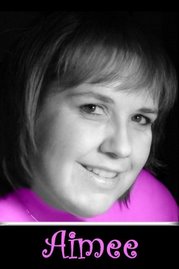
I'm going to cover each section of this book on my blog as I follow the program. I encourage you to get a copy of the book and follow along with me (the book has a lot of really good examples and more that I can't really cover because these blogs would just be too long). In the chapter's leading up to day #1 of The Beck Diet Solution, Judith Beck talks about many important ideas as to why many of us think we can't lose weight, or why we lose it and then gain the weight back.
This book will teach you how to avoid cheating; how to resist tempting food, even if it's on the table right in front of you; and how to cope with hunger, cravings, stress and strong negative emotions without turning to food for comfort. You'll learn how to motivate yourself to exercise, even if you're not naturally inclined to do so.
Basically, the book is going to teach us how to think differently when it comes to how we view ourselves and dieting, as well as how to handle certain situations. You don't have to be following Weight Watchers to follow the information in the book. Any plan will work because it isn't an actual “diet” book. This book is simply to help us be successful, no matter what plan where on. All of the principals are going to be based on Cognitive Therapy, which is basically behavior and talk therapy.
Cognitive Therapy is based on the concept that the way people think affects how they feel and what they do.
I totally agree with this. I've always thought weight loss was more “mind over matter”. You can know a diet inside and out, but until you start thinking positive about all of it, you aren’t going to be successful. We all know how just one negative thought can set us off course. Well, this book is going to help us think more positively so that we can be successful. We will go through a six-week process to change sabotaging thoughts (that cause us to stray from our diet) to healthful thinking (that will lead us to success).
Dr. Beck covers what makes us eat in Chapter 2. She says we think about eating before we actually eat. We may not be conscious of it, but we always have a thought before we eat. We have sabotaging thoughts that encourage us to eat. We rationalize things.
These thoughts often start with the phrase, “I know I shouldn't eat this, but it's okay because…” then we make excuses like “I had a hard day, it will go to waste, or it won't matter”.
I'm sure we can all fill in that sentence ourselves with something we've said just recently.
Dr. Beck continues on to talk about how eating begins with the trigger.
Sabotaging thoughts arise when you're confronted with the trigger, a situation that stimulates your thinking.
Triggers can be anything from a smell, seeing a food commercial on TV, or even just reading a description of food. I can honestly say I have many triggers throughout the day since my job involves making new recipes, answering e-mails about food and recipes, reading about new products and just talking about food in general. Even long after I turn my computer off for the day, it never seems to end. I spend a lot of time looking through cooking magazines, I watch the Food Network on TV for ideas, and I know many of you can relate to this one… just driving down the street past all of the fast food places can set off a trigger. I can drive past KFC and instantly want some fried chicken. But I tell myself to just keep driving. Usually the thought of chicken goes away if I submerge myself in another thought.
The book says, when you encounter a trigger, your thoughts determine whether you act in a productive way that strengthens your resistance muscle or an unproductive way that strengthens your giving-in muscle.
I'm not really going to go into the next section of the book “How Thin People Think”. Basically, it just says that if you struggle with weight loss, you have a different mindset about food and eating than people who don't struggle with their weight. It also says that no matter what your mindset is like today, you can learn how to change it, not only to lose weight, but also to make sure that you keep it off permanently.
Well guys, I know this was long, but I felt like we should all have an intro to the book before actually starting. If this sounds like something you might be interested in, pick yourself up a copy of The Beck Diet Solution by Judith Beck, and come back tomorrow to join me with Day #1 of the six-week program. The book says there will be a new task each day. You’ll need to purchase 3 x 5 index cards, sticky notes and a bound notebook. The cards are for writing important messages, the sticky notes will be for reminder messages and the notebook will be for keeping track of important diet related info. TTYL!





 , maybe on a high shelf, or maybe just don't buy as much and buy healthier things that you can keep in plain view...If you don't have the unhealthy stuff, can you eat it????
, maybe on a high shelf, or maybe just don't buy as much and buy healthier things that you can keep in plain view...If you don't have the unhealthy stuff, can you eat it????









